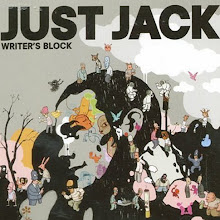I’m sure we’ve all heard someone say to us “You’re supposed to drink 8 cups of water a day,” without having the reasons behind it explained. In this post I will explain why it is important for you to drink 8 cups of water a day (approximately).
Water, like some of the other substances covered, is considered an essential nutrient (substance) because your body cannot synthesize enough of it to stay alive. Thus, we must receive it from another source, whether it’s from food or beverages. According to the Mayo Clinic Staff, the average person uses about 2 liters of water daily, which is equal to 8 cups of water. This is the rationale behind the 8 cups of water; because you want to replace what you’ve used so that come tomorrow you won’t be dehydrated.
Water acts as a catalyst (trigger) for many reactions that go on in the body such as digestion, absorption, transportation of nutrients, metabolism, and expulsion of waste products (Vincent). Without enough water all of these functions are impaired and start to slow down.
You may think that 8 cups of water a day is a ridiculous task, especially because you only get thirsty about once or twice a day. I urge you to abandon this logic, because it’s as erroneous as eating only when you’re hungry. The fact of the matter is that by the time your thirst mechanism has kicked in, your water levels are sub-optimal, and therefore this cannot be used as a reliable indicator of when to drink.
As someone who abides by this rule, but is just as lazy as the next, I advise you to make a game of it. For instance, every time you scratch your head, make a note to drink a cup of water as well. Anything that gets you to drink your 2 liters will suffice. Also, a cup of water is bigger than a normal mug, and 2 liters is about half a gallon. Keep in mind that drinking 8 cups of water, a day, is the MINIMUM amount recommended to replenish what you’ve lost. So next time you scratch your head (or any other part of your body) remember to reach for that cup of water as well.
References
Mayo Clinic Staff. MayoClinic.com. 20 June 2008. 20 November 2008 http://www.mayoclinic.com/health/water/NU00283.
Vincent, Eileen. NORTHWESTERNUTRITION. 28 July 2007. 20 November 2008 http://www.feinberg.northwestern.edu/nutrition/factsheets/water.html.
Friday, November 14, 2008
Subscribe to:
Post Comments (Atom)

5 comments:
I must say that your entries are very informative. I noticed that it's geared toward the interior (physical body). It would be neat to see what you can find on how these supplements, water, etc. can affect the exterior. Such as, your skin, hair, nails, etc.
Are there certain products that we should stay away from or continue to use? Just curious.
Looking forward to reading some more.
My parents always told me to drink 8 cups of water a day. I never really cared or did it. I still don't, but I guess I should change that. I never knew that water had such a huge impact on our bodies.
One thing that I have heard is that drinking too little water can slow your metabolism and make you fat as well. I think you should consider your next post to be about what the effects are of not drinkin water. It will be interesting to read!
Anyways, keep posting! Can't wait to read more!
Good data, but the text you have here is very similar to research also out on the web (see http://www.go-nxg.com/?p=864). You must quote sources if they're word-for-word quotes. Let's chat about how to do that during class...otherwise, you could risk issues in documentation.
Your post is very informative. I tell you what though, if I drink 1 glass of water for everytime I say, scratch my head? I'd be water intoxacated.
You know it is not an unseen phenomenon when people die from hyper-hydration or otherwise known as hyponatremia. To achieve this though you would have to rapidly drink water, faster than your body could excrete it.
Post a Comment